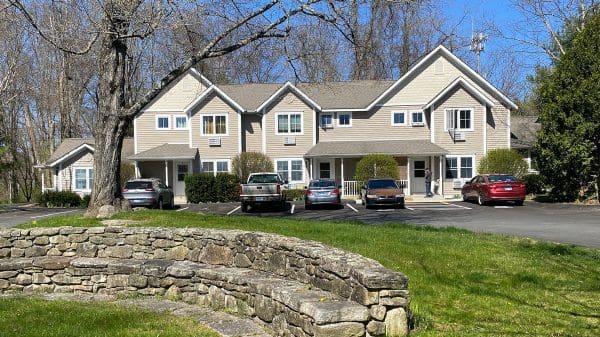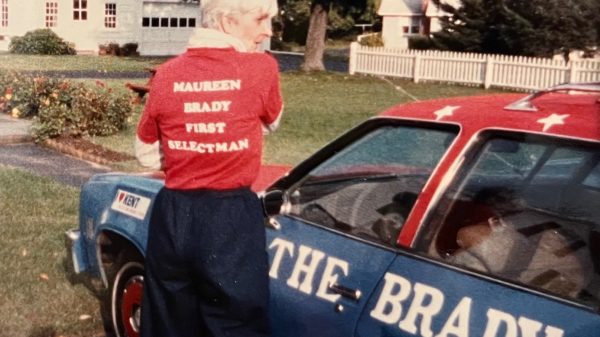KENT—A too-tight deadline and a daunting task of collecting data were contemplated by the Broadband Committee during its March 20 meeting.
Member Ken Cooper gave the group an account of what needs to be done to apply for grants to extend broadband connectivity to every nook and cranny of Kent’s hilly landscape. “I want to make sure everyone is on same page,” he said. “We need to understand the size of the hill we need to climb.”
“There are two big pots of money to fund broadband projects,” he said. “BEAD (Broadband Equity, Access, and Deployment) funding is from the federal government and funding details are currently very unclear to us—it’s something I recommend we monitor until it becomes clearer.”
On the other hand, there is no time to wait to apply for the Connect Connecticut Communities grant. “They have a clear focus, a process to apply for funds and it is much clearer what we have to do to get the money and what their priorities are for giving it out,” Cooper said. The only problem is the application is due April 30.
He added that BEAD does not require matching contributions from towns, but that Connect Connecticut Communities requires a financial commitment of 25 percent of project costs. “If we got a $1 million, we would have to demonstrate a commitment of $250,000 to match it,” he explained.
Cooper said Connect Connecticut Communities’ highest priority is extending broadband to areas not currently served and to low-income and economically disadvantaged residents. Kent is not categorized as a disadvantaged community, although the group pointed to the affordable housing and senior housing complexes as areas that could bolster an application.
“They have point systems for giving out funds,” Cooper continued, “but that doesn’t mean they won’t provide for other areas that are not connected.”
It was questioned as to how many residences in town are not connected. An estimate of 20 residences was offered, but later discussion suggested houses along private roads may also have connectivity issues.
A top priority is extending fiber optic throughout the town rather than coaxial cable. Fiber can comfortably deliver speeds of one gigabyte for both downloading and uploading, while the fastest speed coaxial cables can achieve is typically around one gigabyte for downloads and 35 megabytes for uploads—and these levels are rarely achieved.
Cooper said that not having fiber optics available could affect the resale value of houses.
“To file an application, we have to be able to give specificity about residences. Say there is road with no connection, we would have to identify where the residences are and how far they are from a pole,” he said. In addition to mapping the system, the community must test upload and download speeds.
Kent must also demonstrate the ability to manage the system when submitting an application. Cooper said some communities have partnered with broadband companies such as Frontier and Spectrum because those companies have the ability to manage the systems. Other towns have gone to independent contractors.
“Until we have a partner to implement the connections, we cannot submit the application,” he said. “I think it is highly unlikely we would even be able to identify a partner and get an agreement ready by April 30. We’re already behind eight ball.”
“We would need a town vote to commit the money,” said member Sarah Marshall. “We don’t even know what we would be asking for.”
But Committee Chair Lynn Mellis Worthington said it would “be crazy not to apply. We might have to just pick a number with a partner.”
Even with the uncertainty about being able to gather all the data in a month, finding a partner and getting a financial commitment from the town, Cooper believes it is a worthwhile exercise. “Until we go through the mapping process, we won’t under understand what we have and don’t have,” he said. “We have to start where the current money is and what we have capability and capacity to do. It is in our best interest to do the mapping so we can participate in the future.”
Worthington said she feels the state will get pushback from towns and will have to adjust its deadlines. “The selectmen can sign an agreement, but if they [the state] think we can have town meetings within 30 days … . It’s not fair to put this kind of pressure on small towns. It’s a lot of work.”
Cooper said the committee should divide responsibilities among its members and establish “action steps, knowing we all have full-time jobs and do not have the capacity to manage a significant undertaking like this alone.”
He suggested that a volunteer reach out to Frontier and Spectrum, as these firms are interested in expansion and should “have people in their organizations familiar with these programs.”
Worthington displayed a survey she has been working on that will be made available to residents both online and in paper copies distributed to key points in the town. It was noted that paper copies might be more effective in getting responses from people who are distressed or lower income and who “do not stay connected as much as we do.”




























